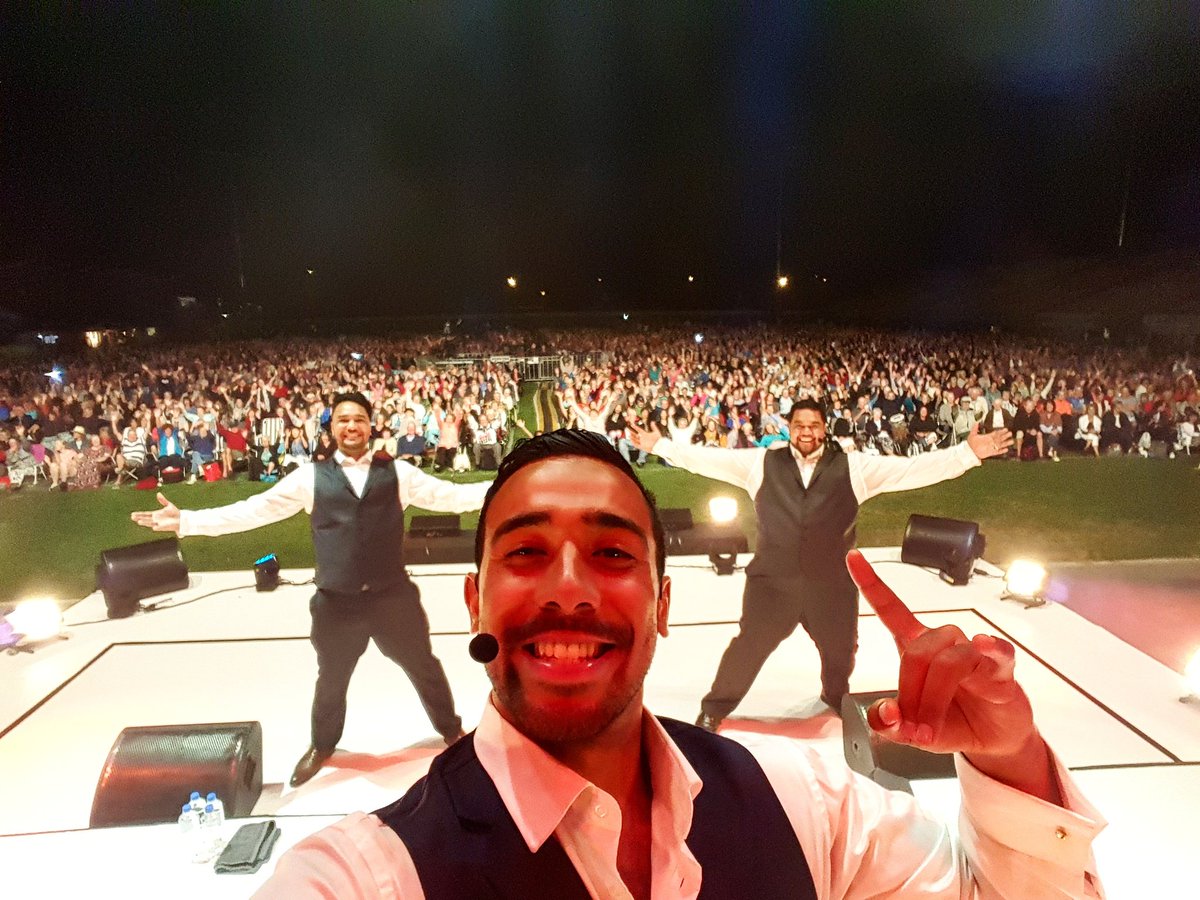I have just had a weekend of wall to wall music. Beginning on Saturday night, another concert at Trafalgar Park, this time by a musical trio called Sol3 Mio. They are classically trained and wowed the audience with everything from pop to classical. At points in the evening they had everyone singing along, and almost the entire audience up dancing. Here is a selfie (copied from Twitter!) they took of themselves, looking back at the audience.

It really was a magical evening. New Zealanders are very proud of this group. They are all related (two bothers and a cousin) and grew up in Samoa (once part of New Zealand). When introducing one song they talked about their roots very fondly but also explained how difficult is was for them to be taken seriously precisely because of those roots. For me, sitting in the audience listening to them, and seeing the hills around Nelson in the background, it was spectacular.
Here is a link to one of the songs they recorded.
https://www.youtube.com/watch?v=RNByjeiimxw
Here is a picture taken at the concert. In no way does it do the experience justice but perhaps it gives you a bit of an idea of where I was.
Event number two was Sunday afternoon back at Founders Park, the park just a five minute walk from me. Another afternoon of jazz, performed by the Nelson Jazz Club. Perhaps more entertaining than the musicians was the little girl in white, who clearly loved having an audience.
And lastly, on Sunday night a fundraiser for the Nelson School of Music, at Nelson's Theatre Royal. Six groups in total performed, everything from African music sung by the choir Mosaic, to folk groups, a string quartet and some Celtic music. Something for everyone. Perhaps the group that took the prize for strangest name was Django Schmango. Not a big surprise that they played music by Django Reinhardt.
The Theatre Royal is a bit larger and fancier than Wolfville's Al Whittle Theatre (see picture below) but there were times listening to the folk groups when I could have sworn I was back home.



















